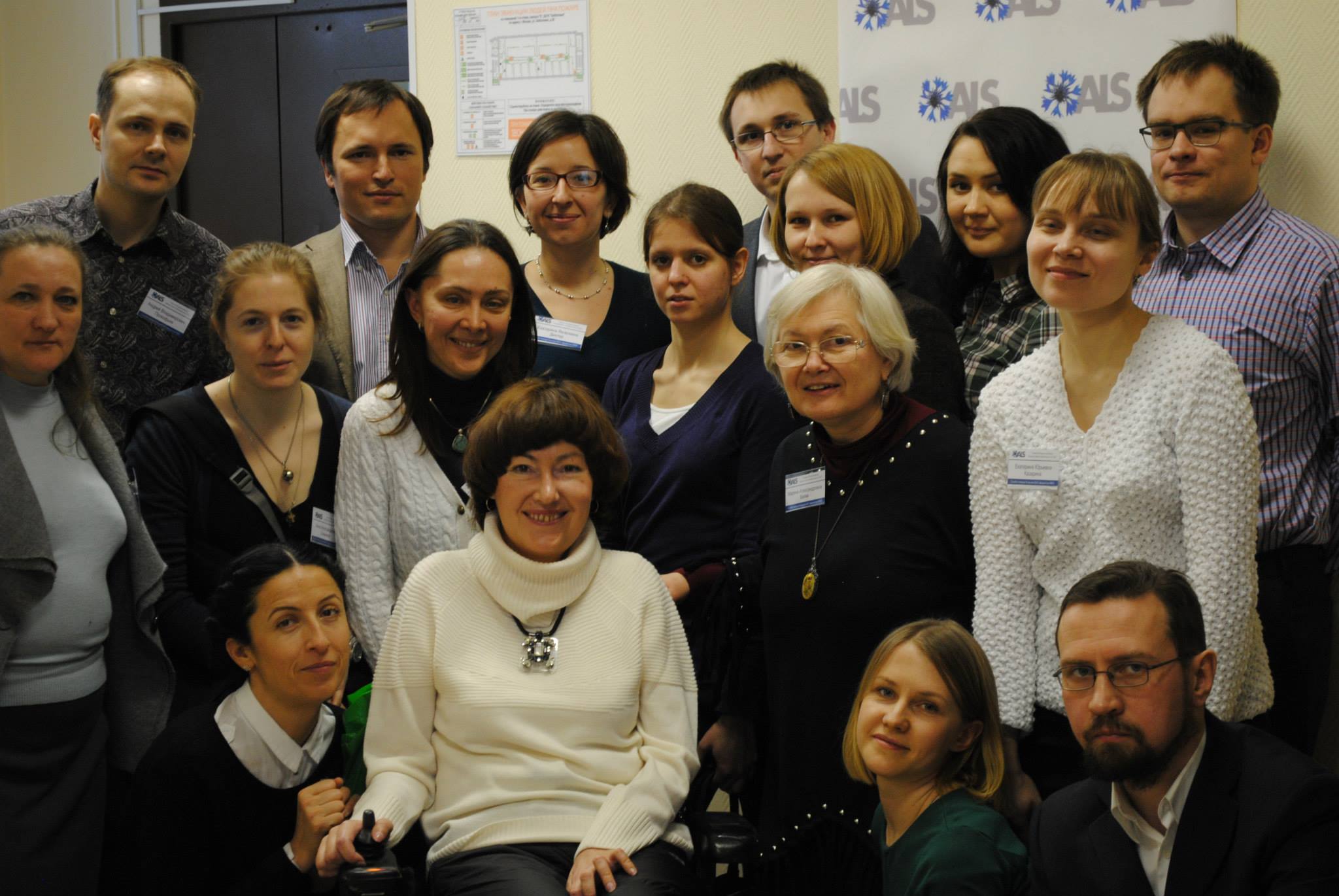University’s Social Mission

HSE has hosted the first patient conference ‘Amyotrophic lateral sclerosis (ALS): sharing experience to help people with ALS. The event was organized by a group of relatives of people with ALS, in conjunction with the Federal State Public Scientific Institution ‘Neurological Science Centre’, and the ALS Support Service at the Miloserdie medical centre. The HSE’s International College of Economics and Finance and the Laboratory for Experimental and Behavioral Economics acted as co-organizers. Volunteers, psychologists, and doctors in various specialties who are involved in treating people with ALS also took part.
About 7 percent of instances of ALS are related to genetic disorders, while the remaining 93 percent of cases have no clear cause. There are about 12,000 people with ALS in Russia, and the only organization that provides comprehensive support to people with ALS was founded four years ago: the support service for people with ALS at the Miloserdie (Mercy) Medical Centre at the Convent of Martha and Mary. This is a donations-driven organization, and thanks to others’ kindness, dozens of patients receive psychological and clinical support and help (mainly respirators) from medical staff at the Neurological Science Centre and City Clinical Hospital Number 12.
People with ALS need ventilatory support to breathe either from a ventilator or with the help of morphine (the situation with this latter in our country is somewhat complicated).
Conference participants discussed the need for doctors and patients to work together, the latest psychological and palliative care, and legal aspects of decision-making regarding life support. In developed countries these are issues that have been discussed for a long time, and patients can find acceptable answers to them. This is what Russia is moving toward.
How is Economics Relevant?
For several years now, internationally, research has been underway into how people make the decision to live or die. It is also being examined from the behavioral economics perspective. Researchers want to answer difficult questions: what decisions did a deceased person make regarding how they would spend their last days? Did they die as they wished? Did their relatives and doctors do everything within their power to abide by their last wishes? How can this process be improved? The HSE’s Laboratory of Experimental and Behavioral Economics has a project in this very area. In the near future it plans to carry out a survey on dozens of people whose relatives had ALS. This could be the start of the development of a database that could help create mechanisms for identifying the optimum solution for both the patient and their relatives.
Another subject raised was related to innovative developments in IT that could help patients communicate using their eye movements or partial body movements. One key, concrete, outcome of the event was the decision to establish an ALS Patient Association.
‘Society should understand that there are people who are terminally ill, and it is society’s duty – as a civilized entity – to help them,’ said Alexis Belianin, head of the HSE’s Laboratory of Experimental and Behavioral Economics. ‘In summer, thanks to the Ice Bucket Challenge (a flashmob in which people poured ice water over themselves and made donations), the whole world started talking about ALS. In just three months, over $200 million was raised, and donations are continuing to come in to the ALS Association charity. We are trying to make our contribution at the level of contemporary economic sciences, offering patients a strategy if not for victory (which is, today, impossible) but to fight this condition. This is part of the University’s social mission.’
Lyudmila Mezentseva, HSE News
See also:
HSE Researchers Determine Frequency of Genetic Mutations in People with Pulmonary Hypertension
For the first time in Russia, a team of scientists and clinicians has conducted a large-scale genetic study of patients with pulmonary arterial hypertension. The team, which included researchers from the International Laboratory of Bioinformatics at the HSE Faculty of Computer Science, analysed the genomes of over a hundred patients and found that approximately one in ten carried pathogenic mutations in the BMPR2 gene, which is responsible for vascular growth. Three of these mutations were described for the first time. The study has been published in Respiratory Research.
'Science Is a Way to Escape Fears Brought on By the Chaos of Nature'
In high school, Mikhail Shishkin used to dismiss probability theory as mere speculation, but today he applies it to solving problems in population genetics. In this interview with the HSE Young Scientists project, he discusses what a modern person's genome can reveal about the past, the question he would pose to the author of Fermat's Great Theorem, and The Ashley Book of Knots.
New Online School on Population Genetics and Analysis
The HSE International Laboratory of Statistical and Computational Genomics has launched an online school for applied population genetics and analysis. The school does not require special knowledge in biology and is aimed at students, graduate students, and postdocs in mathematics, physics, and computer programming.
Innate Stress: Researchers Find Link Between Genes and Subjective Well-Being
In the recently published article ‘Association of MAOA-uVNTR Polymorphism with Subjective Well-Being in Men,’ a team of researchers was able to statistically monitor the impact of the monoamine oxidase A gene (MAOA) on the subjective evaluation of well-being among men. This work became the latest step towards an understanding of how genes can affect social phenomena.
HSE Researcher Publishes an Article in 'Nature Genetics'
Maria Nazarova, Junior Research Fellow at the Centre for Cognition & Decision Making co-authored an article published in Nature Genetics — one of the world’s most authoritative journals, dedicated to the latest achievements in genetics.


